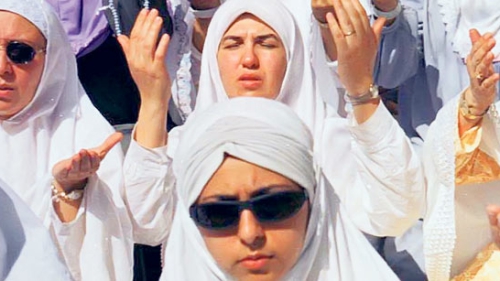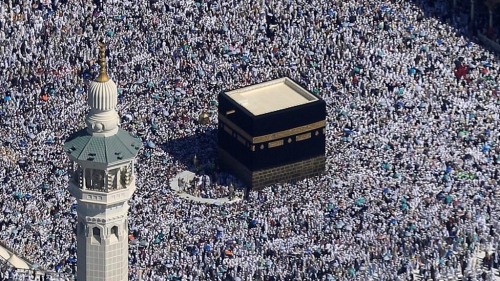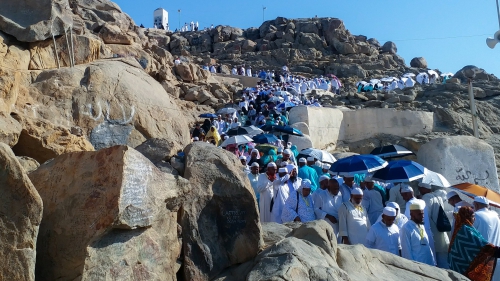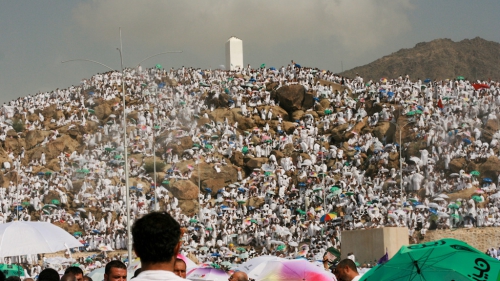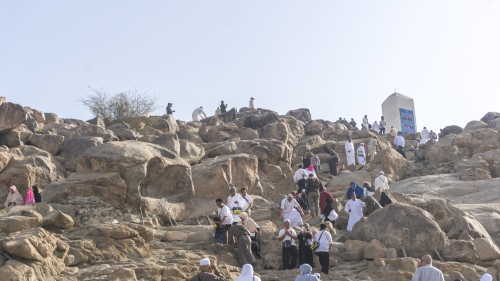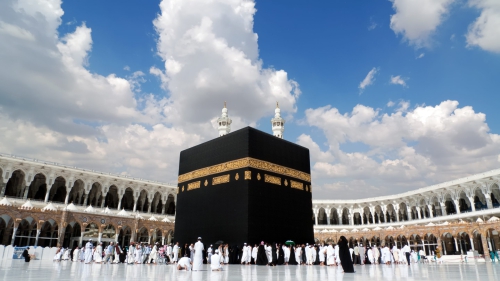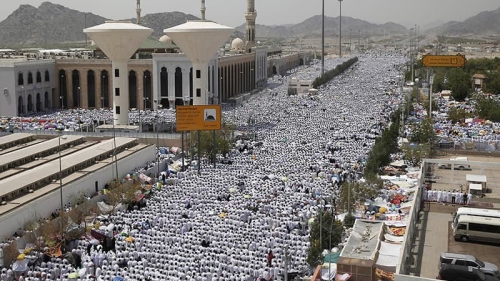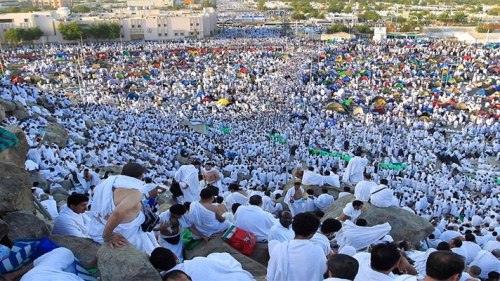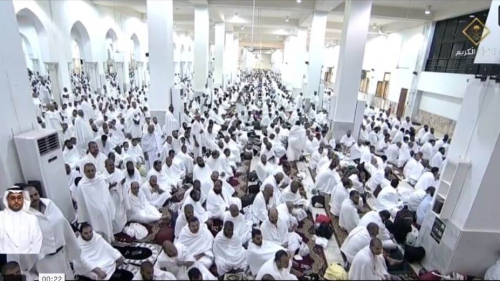Global Hajj Cancellation: A Divine Call for Introspection

Saudi Arabia’s decision to replace this year’s Hajj pilgrimage’s attendance from the usual 2.5 million pilgrims to a token 1,000 in light of the Covid-19 pandemic, might be a sign for mankind’s introspection. As humans, we have rights over other humans, and other humans have rights over us. Not following Divine commands make us susceptible to trials and tribulations. If this viral outbreak is a trial for us, what have we done in the recent past that could have invited this scourge?
Hajj is a once in a lifetime pilgrimage requirement which is a very emotional moment in the life of every Muslim. Ever since they are young, Muslims look forward to the time when they would be able to fulfill this commandment – the fifth pillar of Islam. Unlike the first three pillars of Islam that are obligatory on all Muslims, the fourth and fifth pillar- i.e. the Zakah, and the Hajj become obligatory only when a person attains a measure of wealth that puts him/ her into the category of sahib-e-Nisab (people of means). But Hajj also needs a person to be physically fit to endure the physical exertions involved with various arakeen of Hajj. Given the uncertainties associated with health, and life itself, people are encouraged to perform Hajj at the earliest possible opportunity.
Now, this worldwide pandemic has reminded us that in addition to the well-known vulnerabilities such as age and health induced limitations, other least expected factors can crop up unannounced that could prevent someone from going on a planned Hajj. Most of us don’t realize that this Covid-19 outbreak was not the first time that a Hajj was interfered with. Napoleon Bonaparte’s military operations in Egypt and Syria had interrupted the Hajj, earlier. So, we can now add a category called “extra ordinary event,” to our Hajj-vulnerability-list, so we do not procrastinate in performing the Hajj when we are financially and physically able to do so.
This viral outbreak has affected all aspects of life – shutting down both vice dens, as well as houses of worship. So, how do we analyze this devastating epidemic? Do we consider it as just another accident? It is true that things can be analyzed from various perspectives. But as Muslims we should take every opportunity of self-analysis seriously. True, some Muslims have used this period of social isolation to pray at home more regularly with the family. But, how about the Hajj? Many people in other countries spend a lifetime accumulating money to perform the Hajj. Stories of their heartbreak at not being able to perform the Hajj this year are quite sad. By interrupting the Hajj, is it possible that Our Creator is indicating His lack of happiness with the way we humans have been behaving on this planet? How should we as Muslims be looking at natural calamities of this magnitude?
As Muslims we know nothing happens without Allah’s permission. Say, "Never will we be struck except by what Allah has decreed for us; He is our protector. And upon Allah let the believers rely.” (Qur’an 9:51). So, since Allah allowed the COVID-19 epidemic to occur, the question then is, why?
There are various Ayahs of the Qur’an that answer this question, and also specify the course of action we need to adopt when faced with natural calamities of this scale:
And whatever strikes you of disaster - it is for what your hands have earned; but He pardons much. (Qur’an 42:30)
And if Allah were to punish men for that which they earned, He would not leave a moving (living) creature on the surface of the earth, but He gives them respite to an appointed term, and when their term comes, then verily, Allah is Ever All Seer of His slaves. (Qur’an 35:45)
Corruption has appeared throughout the land and sea by [reason of] what the hands of people have earned so He may let them taste part of [the consequence of] what they have done that perhaps they will return [to righteousness]. (Qur’an 30:41)
And if the people of the towns had believed and had the Taqwâ (piety), certainly We should have opened for them blessings from the heaven and the earth, but they belied (the Messengers). So We took them (with punishment) for what they used to earn (polytheism and crimes, etc.). (Qur’an 7:96).
As we see from the above, Allah is infinitely merciful and has no desire to punish humans for their outrageous transgressions and sins. However, He does want humans to stop sinning and turn in repentance to Him. Thus, He occasionally sends these ‘wake-up calls’ – and as we also say in English “rattle the cage,” to get people to change their behavior.
The Qur’an tells us that sometimes, during these trials innocents may also get caught up as collateral. These innocents are rewarded by Allah in the hereafter. And fear a trial which will not strike those who have wronged among you exclusively, and know that Allah is severe in penalty. (Qur’an 8:25).
For the good Muslims, these calamities are tests: Or do you think that you will enter Paradise while such [trial] has not yet come to you as came to those who passed on before you? They were touched by poverty and hardship and were shaken until [even their] messenger and those who believed with him said, "When is the help of Allah?" Unquestionably, the help of Allah is near. (Qur’an 2:214).
We also need to remember that before Allah destroys a people, He warns them by sending periodic smaller trials as warnings to get their act together and turn to Allah, such as was done with Pharaoh. And We certainly seized the people of Pharaoh with years of famine and a deficiency in fruits that perhaps they would be reminded. (Qur’an 7:130)
So, once we are in the middle of a calamity such as this, what do we do? Allah has given the formula in Surah Baqrah – i.e. by turning to Salah (prayers), and having Sabr (patience). Allah loves sincere repentance; in the following verse Allah says that He would not punish anyone while they seek forgiveness: But Allah would not punish them while you, [O Muhammad], are among them, and Allah would not punish them while they seek forgiveness. (Qur’an 8:33). The Qur’an assures us that if we fear Allah, he will take us out of any trial or tribulation: And whoever fears Allah - He will make for him a way out. (Qur’an 65:2)
Misbahuddin Mirza, M.S., P.E., is a licensed professional engineer, registered in the States of New York and New Jersey. He served as the Regional Quality Control Engineer for the New York State Department of Transportation’s New York City Region. He is the author of the iBook Illustrated Muslim Travel Guide to Jerusalem. He has written for major US and Indian publications.
Topics: Coronavirus, Hajj, Hajj 2020, Iman (Faith And Belief), Pandemic, Taqwa (God Consciousness) Channel: Hajj - Day 2
Views: 1242
Related Suggestions









